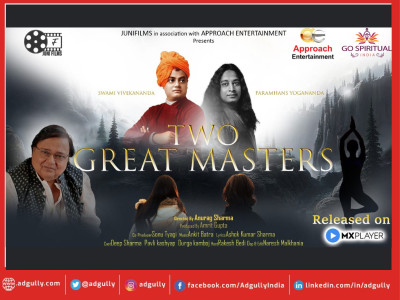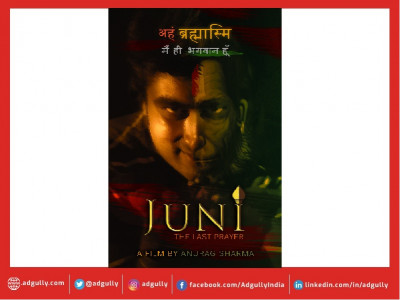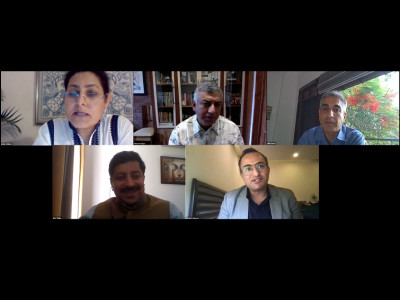Implications of adding political clause in celebrity endorsement contracts
Deepika Padukone, one of the highest paid actresses in Bollywood, faced backlash on social media after she came out publicly in support of and expressed her solidarity with the student protesters at JNU some time back. This, in turn, led some of the brands that she endorses hold back some of the ads where she appears.
A report by The Economic Times mentions that brands may pull out ads featuring the actress till the public row in the matter dies down. According to Duff and Phelps, Padukone’s brand endorsements are valued at $102.5 million. Among her associations are brands such as Britannia Good Day, Tanishq and Epigamia.
Speaking on this issue, Siddhi Dholakia, New Business Director, C Lab, the influencer marketing arm under Dentsu Aegis Network, opined, “Big brands usually look for mass market appeal and don’t like to alienate any segments of the market. A stance on political issues can anger the administration and even the diehard fans may be desperate to take revenge or dump that celebrity. As a result, it affects brands’ goodwill, even if the endorsers’ point of view is socially correct.”
Every once in a while a celebrity lands in trouble due to voicing dissatisfaction with the ruling administration. In extreme cases, the brand may not renew their contract with the celebrity or even deem the existing contract null and void.
A case in point is Snapdeal deciding not to renew its contract with Aamir Khan after his remarks about ‘not feeling safe in the country’. Even though the remarks were made in the actor’s personal capacity, the brand suffered an immediate and tangible blow to its brand equity, with negative views on social media and many users opting to uninstall the app from their phones.
Brands may have to start caring about what their celeb endorsers say on social media handles as well as in public as it could have adverse impact on their business. If it is a black and white issue like #MeToo, then brands might either be ambivalent about the celebrity’s stance or even in support of it. But increasingly, social issues are also being politicised, like when journalist turned politician MJ Akbar was also accused in the witch hunt.
“Celebrities, especially from the most popular world of sports and entertainment, have the power to shape minds by their sheer reach and influence and hence, the importance of considered choice of actions and words by them,” remarked Ashwani Singla, Founding Managing Partner of reputation advisory firm, Astrum.
The ET report further stated that brands may explore clauses in contracts with celebrity endorsers to factor in the ‘risks involved in celebrities taking political stands’. We reached out to experts to find out how this could affect the terms of their contract.
Celebrities endure
Golfer Tiger Woods’ perception as one of the best sportsmen in the world came crashing down in the aftermath of his sex scandal. The man was at the height of his career, raking in $92 million in sports endorsements and was one of the highest paid celebrities in 2009. He lost the backing of 4 major sponsors – Gillette, AT&T, Gatorade and General Motors – and his valuation dipped by $22 million.
At the same time, it is important to keep in mind that it is not a one-size-fits-all mindset with brands. Big names like Nike continued to associate with Woods even after the scandal. Perhaps it was Woods’ enduring popularity or that Nike’s brand wasn’t really affected that they chose to continue with their association.
Another interesting case is that of Salman Khan, whose associations with big name brands are limited due to pending court cases against him. There is a reason why you won’t see any auto brand associate with Salman, but other categories like beverage brands that need to target the youth continue to associate with him.
Brands usually desist from having a knee jerk reaction to celebrity scandals. It takes more than a tweet or an offhand comment to cut ties with an endorser. If the views or stance by the celebrity goes against the brand philosophy, then there is a problem. But that usually isn’t the case since brands pick their endorsers very carefully.
How do brands distance themselves?
If a brand signs on a high profile celebrity, these contracts are valid for a period of 1-3 years. Nobody signs a three-month deal unless it’s at a micro-influencer level.
Normally, when brands sign on a big name celebrity, they have to spend about 10 times the signing amount on promotions. The brand has to make all the right noises on social media, generate PR buzz and plaster the face of the celebrity on all their branding materials.
To roll back on that kind of commitment is costly.
Sonu Tyagi, Director, Approach Entertainment, a celebrity talent management company, explained, “If you are signing a contract with a celebrity for one year, then you can’t disassociate with them in any way during that period. You have to continue to associate with the brand or celebrity until that contract is valid.”
Tyagi further said that while the brand has to continue paying the celebrity until the contract is valid, they can cut costs considerably by pulling back on the media spends.
But sometimes brands have a ‘get out of jail’ clause in their contracts. The eligibility of the brand endorser will depend on his/her adherence to certain agreed terms and condition which are stipulated in the contract. Violation of these conditions could render the contract null and void.
For example, a multinational company may not be comfortable with their brand endorser passing religious remarks and may include it as a condition in the contract.
Now, brands may even choose to filter comments which are politically divisive in their contracts. But the problem with including such a clause in contracts is that their ambit is too wide.
Heads up required?
“Yes, a heads up needs to be given by the endorser to all brands involved,” opined Dholakia. She added, “The brand can then decide if it’s in sync with their brand story and if the same can be capitalised upon, or pause/ terminate the association. Legal documentation can play a critical role here and possibly capture this point under ‘Right to terminate association’ clause. In either case, the brand’s PR strategy will play a crucial character.”
Tyagi noted that currently celebrities are not required to inform their brand partners and can post whatever they want on social media. Since the celebrity has dealings with brands as well as the film, there might be a conflict of interest.
“Most of these decisions are taken by the film marketing team. In some cases even the celebrity may not know what they are getting into.” In the case of backlash for Deepika Padukone’s film ‘Chhapaak’, Tyagi said that “the film PR people might have suggested the strategy to get mileage out of it, but in any case it backfired.”
“Adding their voice apolitically to social issues can define people and brands. Most importantly, the stand should reflect long standing beliefs of the person/ brand, otherwise it would be seen as a ‘PR stunt’ generating negative returns. Authenticity is the key to enduring affiliation,” Singla concluded.





















Share
Facebook
YouTube
Tweet
Twitter
LinkedIn